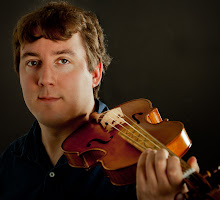But more on that in a later post, once I've had time to digest it all. At this stage I want to write about a relatively minor issue of truth that came up while I was working as assistant librarian at Marlboro Music over the summer. The tiny community of Marlboro, Vermont plays host every year to one of the great chamber music festivals in the world. This year it celebrated its 60th anniversary, led by music directors Mitsuko Uchida and Richard Goode. The students who get selected for this festival are among the top young instrumentalists and singers of today, and rehearse and perform chamber music alongside more experienced professional performers. I was fortunate to see some pretty spectacular concerts.
One of the concerts featured all the vocal students who were there - a liederabend, in which each singer sang all or part of a song cycle. One of the singers sang several songs of Richard Strauss, including one of of his most beautiful, Op. 27 No. 4. I won't reveal its title just yet, because its title is the mystery at the heart of this blog.
As assistant librarian, I helped type up the physical programme, with a list of all the songs that were to be performed. As I was entering the details into the computer I discovered that one of the scores we had in the library for this particular song listed its title as Morgen (Tomorrow). But when I checked the online Grove Encylopedia of Music, the Lied was listed under Strauss' works as Morgen! (Tomorrow!). Hardly a difference of epic proportions, but still...was this title just neutral in character, or was it intended to evoke something dramatic, something accusatory, something wondrous? Normally I wouldn't be that bothered, but since on that day it was my job to get it right, I had to do some research. Googling for an answer only resulted in equal examples of both options. My instinct told me it was most likely Morgen!, since I figured it was more likely that people made the mistake of leaving the exclamation mark out, rather than someone having decided one day to just randomly put it in.
Here is the poem's text, as Strauss set it, with translation:
Und morgen wird die Sonne wieder scheinen,
Und auf dem Wege, den ich gehen werde,
Wird uns, die Glücklichen, sie wieder einen,
Inmitten dieser sonnenatmenden Erde ...
Und zu dem Strand, dem weiten, wogenblauen,
Werden wir still und langsam niedersteigen.
Stumm werden wir uns in die Augen schauen,
Und auf uns sinkt des Glückes stummes Schweigen ...
And tomorrow the sun will shine again,
And on the path that I will go,
Will she us, the happy ones, again unite
Amidst this sun-breathing earth ...
And to the beach, wide, wave-blue
Will we still and slowly descend
Silently we will look in each other's eyes
And upon us sinks the mute silence of happiness ...
Again, after reading the text, I felt that the exclamation mark in the title far better conveyed the wondrous, love-struck sentiment of the poem, set to music by Strauss for his wife Pauline on their wedding day. Just to be sure, though, I figured it would be best to go to the source; if I could find the original autograph score of Strauss' song, I'd have the answer! But, the Marlboro music library didn't have a copy, and imslp.org, the amazing website for musical scores, also came up short. I was stuck.
But I had one more option. What if I could find online the original collection of poetry, in German, from which Strauss took the poem to set to music? The poem was written by one John Henry Mackay, born in Scotland in the same year as Strauss, but raised in Germany. After about half an hour of online digging, I finally ended up with a screenshot of the original page of german poetry. And it was a wondrous sight. Take a look, on the left hand page at the bottom:
What an awesome result! An exclamation mark, followed by an ellipsis, expressing not only wondrous love-struckness, but also a sense of eternity, of love lasting into the distance.
Satisfied at last, I put this information into the programme and printed it out so that one of the vocal coaches could look over it and make sure everything was to her satisfaction. The next day, she came back bamboozled - she had never seen the three dots before, thought it looked strange and wanted them taken out. I explained my interesting find to her, and showed her the original poetry, but to no avail. Since it wasn't customary to see them in the song's title, it would be better to remove them. Ah rats, I thought, but I removed them as she asked, and the programme officially said Morgen! No big deal.
It's a pretty trivial example, but I think the three dots really does add a small, but deeper layer to the meaning of the poem, that could affect the way a singer colours her voice, or lingers on certain notes. You never know.
As a follow up, I went to the music library today to see if it had Strauss' original autograph score. Lo and behold, it did (Click on the picture to enlarge):
God damn it!!


Well-told story, James!...
ReplyDeleteYou might have inspired me to start peppering my correspondence with exclamation points followed by an ellipsis!...
My experiences with Bilson have been nothing but him being an asshole and trashing unfairly IU's early music program. Love the new blog. I plan to read and comment often.
ReplyDelete